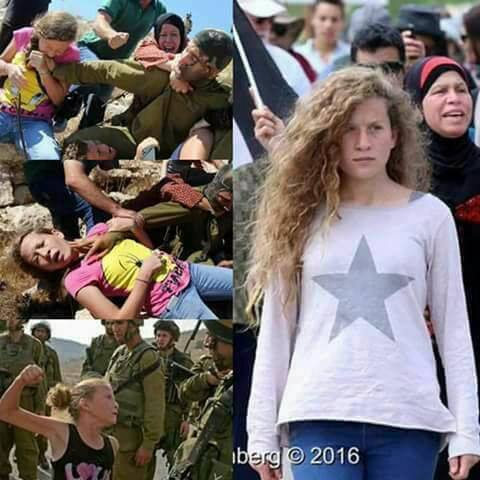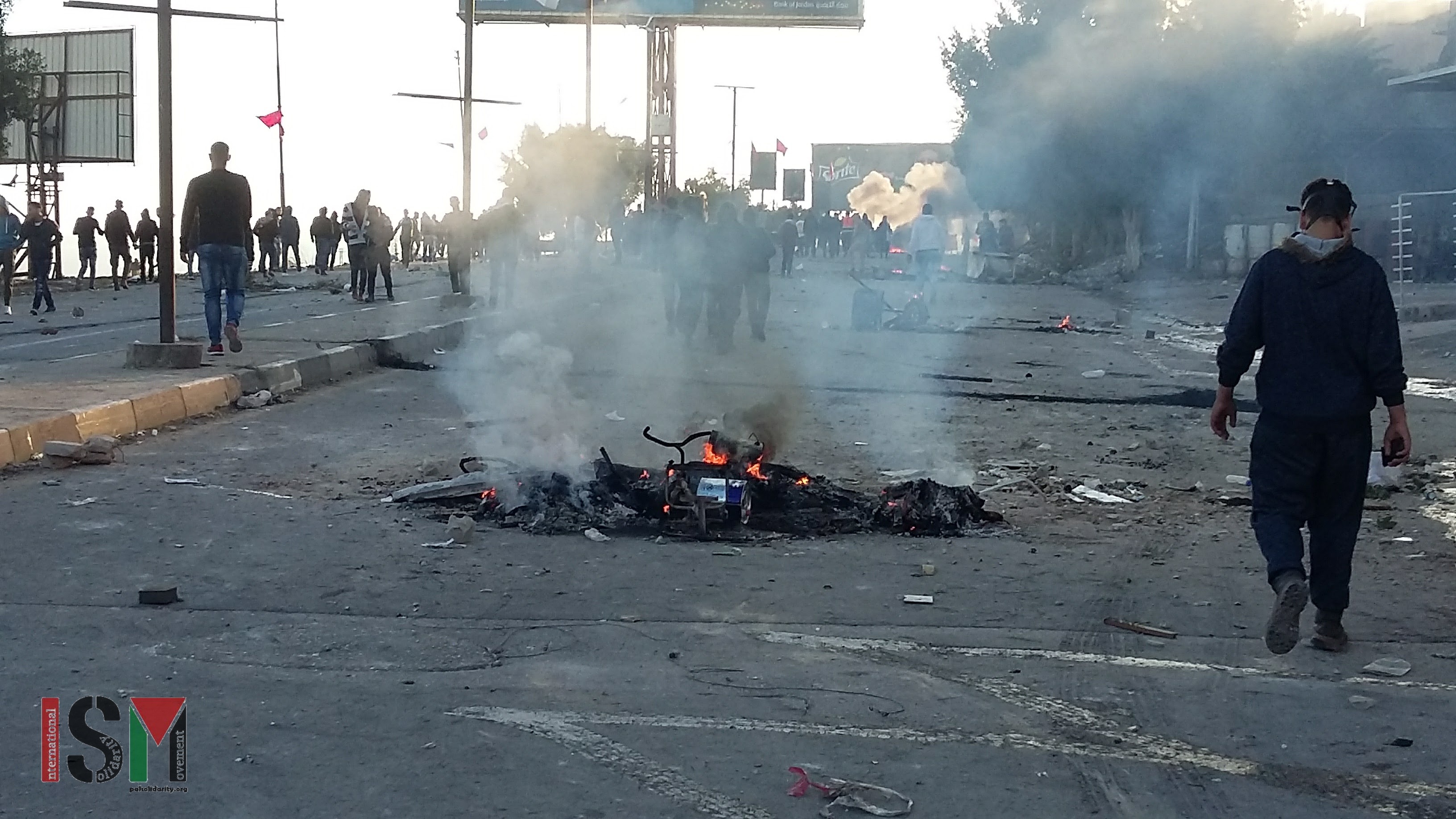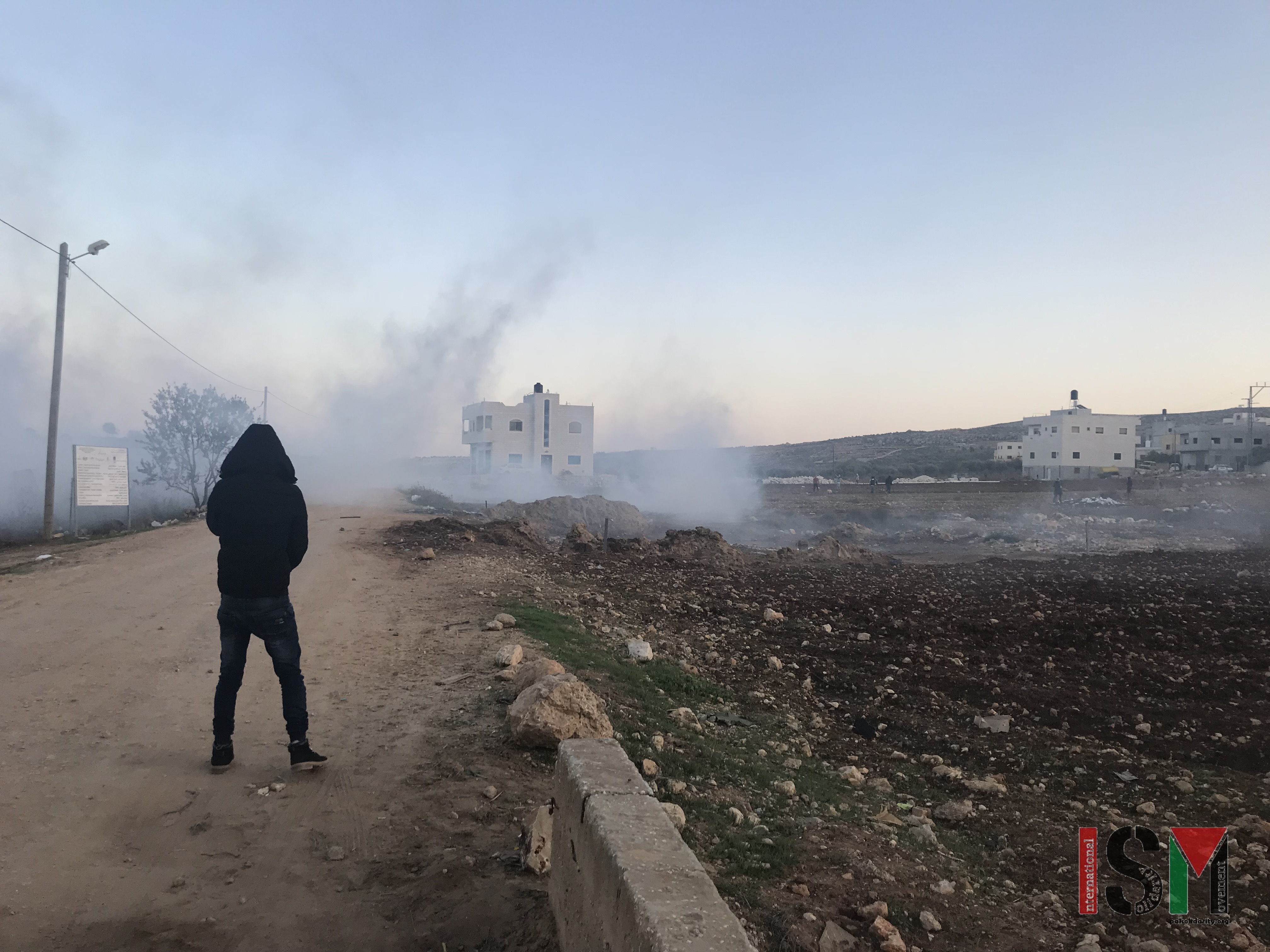Category: Nablus
-
Israeli soldiers arrest 16-year old girl and her mother in Nabi Saleh
December 19th 2017 International Solidarity Movement, Nablus team | International Womens Peace Struggle | Occupied Palestine UPDATE: Bassem Tamimi, Ahed’s father, has also been arrested by Israeli occupation forces as he went to the court where his daughter and wife are held. No break for the kid-targeted repressive operation of the Israeli forces. Tonight soldiers raided Nabi…
-
Live ammunition met Palestinians protesting Trump
December 8th 2017 | International Solidarity Movement, Nablus team | Nablus, Occupied Palestine Palestinians protests against Trump’s decision about Jerusalem have kept on today all across the West Bank and the Gaza Strip. Today in the village Kafr Qaddum in the northern West Bank around 200 Palestinians and internationals gathered in a large Friday demonstration…



